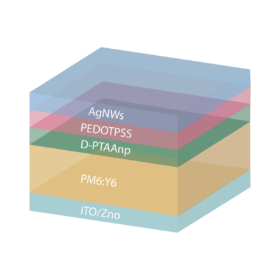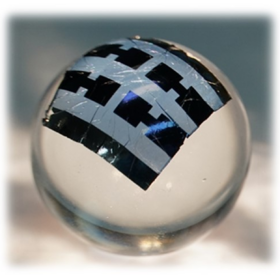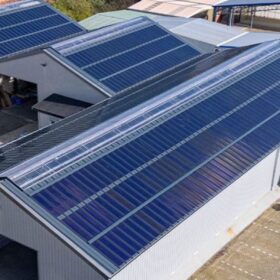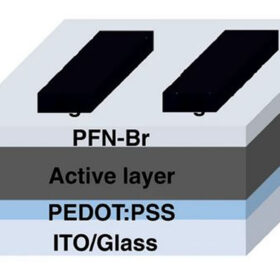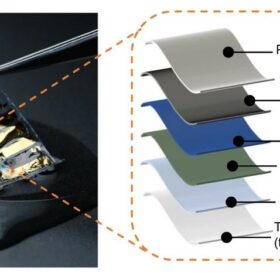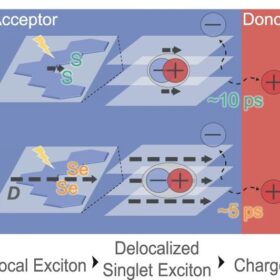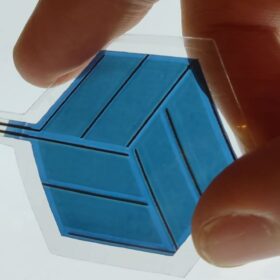Japanese scientists build stretchable organic solar cell with 14.2% efficiency
Researchers in Japan have built a stretchable organic solar cell than can ensure high efficiency levels while preventing crack initiation and propagation. The cell was built with a hole transport layer based on PEDOT:PSS treated with a new additive type.
Ternary organic solar cell based on dimerized small molecule achieves 18.12% efficiency
A team from the Southern University of Science and Technology in China has designed a small molecule donor to act as a third component in ternary organic cells. It helped to achieve a power conversion efficiency of 18.26% when fabricated with a PM6:BTP-eC9 organic solar cell.
Organic solar cell based on PEDOT:PSS hole transport layer achieves 17.1% efficiency
A team of researchers in Germany has fabricated a non-fullerene acceptor-based organic photovoltaic cell featuring a bilayer solution-processed hole transporting layer. It recorded a power conversion efficiency of 17.1% and maintained 93% of its initial efficiency after 1,800 hours under continuous solar cell operation at 60 C.
Organic solar cell with bilayer hole transport layer achieves 17% efficiency
A research team from two Chinese universities claims to have fabricated an organic solar cell with the highest power per weight ratio to date. The device has a thickness of less than 1.5 micrometers.
Heliatek develops lightweight organic PV module for low load-bearing roofs, facades
German organic PV manufacturer Heliatek has announced a new series of lightweight modules. The Heliasol 436-2000-CFE-45-600V panels are IEC 61215 and IEC 61730 certified and have a 20-year lifetime warranty.
Organic solar cell based on trichlorobenzene achieves 19.31% efficiency
An international research team developed an organic solar cell based on a novel non-monotonic intermediated state manipulation strategy. The device reportedly showed non-radiative recombination losses while exhibiting remarkable power conversion efficiency.
Japanese researchers build 14.3%-efficient bendable, waterproof organic solar cell
Researchers from Japan’s Riken Center for Emergent Matter Science have fabricated an organic solar cell that has achieved waterproofness without reducing flexibility. At 3 micrometers thick, it is thought to be the first cell of its kind to survive a washing machine cycle and retain efficiency after multiple cycles.
Non-fullerene organic solar cell with selenium acceptor achieves 19% efficiency
Researchers in China have designed an organic solar cell the uses an acceptor based on selenium as an alternative to commonly utilized non-fullerene acceptors. The new acceptor enabled the cell to have reduced non-radiative recombination loss and improved dielectric constant.
Italian startup offers roll-to-roll process for organic solar panels
Ribes Tech, a spinoff of the Italian Institute of Technology, has established a roll-to-roll process to produce organic photovoltaic modules that it says can be expanded to enable volume production of PV modules for indoor sensors, trackers, and electronic devices.
Fraunhofer ISE unveils 15.8%-efficient organic solar cell
Germany’s Fraunhofer ISE has achieved a world record efficiency for organic cells at the lab level. It now aims to bring the PV technology to market maturity.


